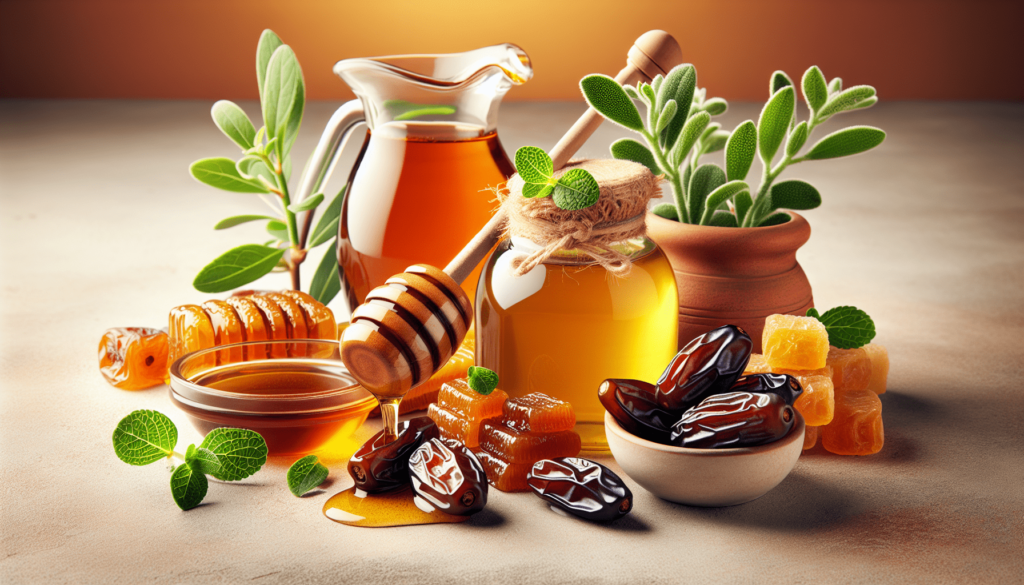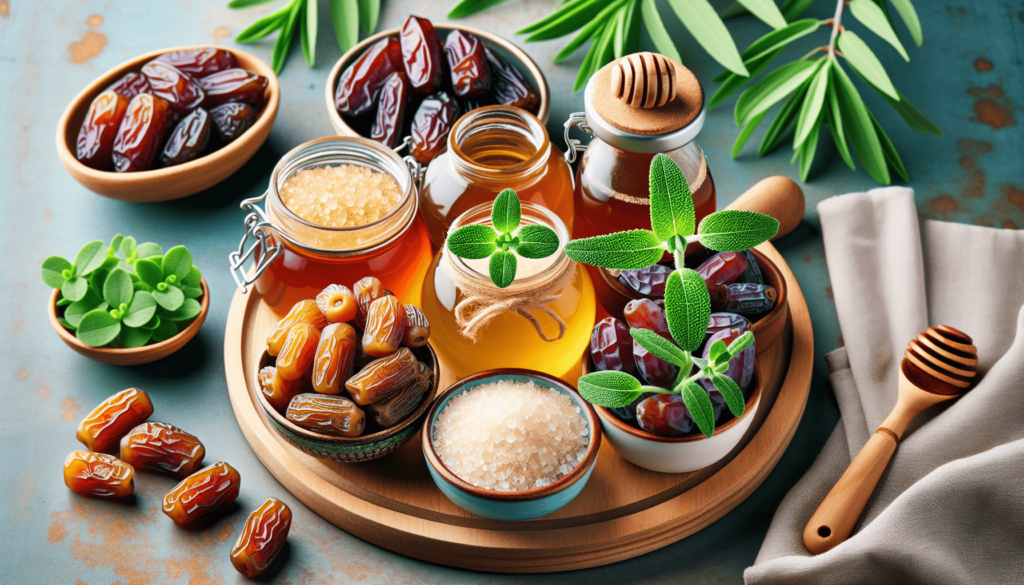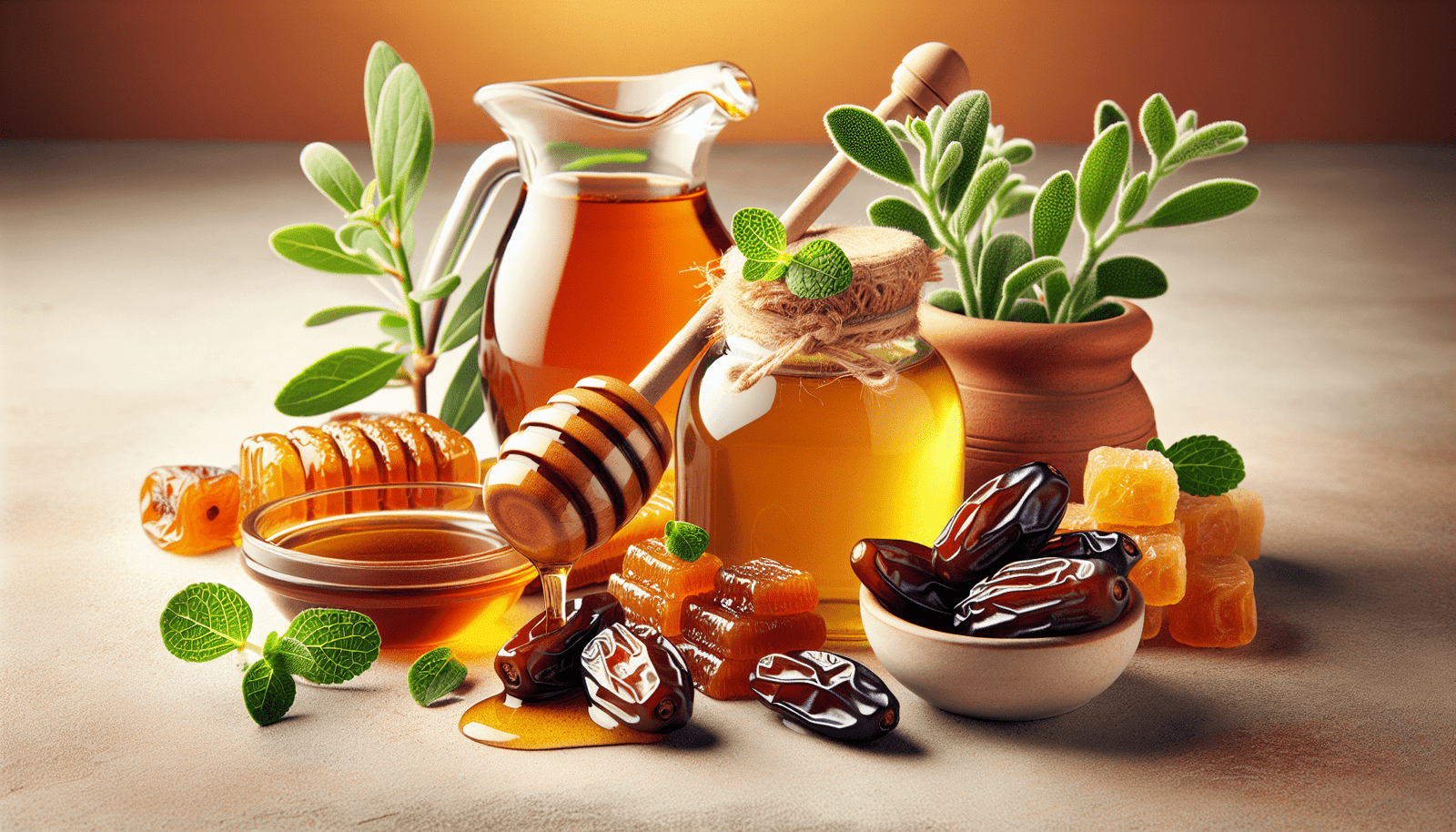Welcome to the wonderful world of natural sweeteners! In this article, you will learn about some amazing alternatives to refined sugar that can satisfy your sweet tooth in a healthier way. From honey and maple syrup to stevia and monk fruit, there are plenty of natural options to choose from. Say goodbye to artificial sweeteners and hello to the delicious and nutritious world of natural sweeteners. Let’s dive in and discover the sweetness that nature has to offer! Have you ever wondered about the different types of natural sweeteners available to enhance your favorite foods and beverages? Let’s take a journey together through the world of natural sweeteners to discover the many options that can add sweetness to your life without the guilt.
The Rise of Natural Sweeteners
When it comes to sweetening your meals and drinks, natural sweeteners have become increasingly popular choices for health-conscious individuals looking to reduce their intake of refined sugars. Natural sweeteners offer a variety of flavors and benefits that can enhance your culinary experiences without the negative effects of processed sugars.
Benefits of Natural Sweeteners
Natural sweeteners are derived from natural sources such as fruits, plants, and trees, making them a healthier alternative to refined sugars. They often contain vitamins, minerals, and antioxidants that can provide additional health benefits beyond just adding sweetness to your food. By choosing natural sweeteners, you can satisfy your sweet tooth while nourishing your body at the same time.
Types of Natural Sweeteners
There is a wide range of natural sweeteners available to suit different tastes and preferences. Let’s explore some of the most popular options and how they can be used in your everyday cooking and baking.
Honey
Honey is a sweet and viscous liquid produced by bees using nectar from flowers. It is a versatile natural sweetener that comes in various flavors and colors, depending on the types of flowers the bees have visited. Honey can be used in a variety of recipes, from teas and dressings to desserts and marinades.
Maple Syrup
Maple syrup is a delicious and natural sweetener made from the sap of maple trees. It has a unique flavor profile that adds richness and depth to recipes, making it a popular choice for pancakes, waffles, and baked goods. Maple syrup is also rich in antioxidants and minerals, making it a healthier option compared to traditional pancake syrups.
Agave Nectar
Agave nectar is a natural sweetener derived from the sap of the agave plant. It is sweeter than honey and has a mild flavor that blends well with both sweet and savory dishes. Agave nectar is often used as a low-glycemic alternative to sugar, making it a suitable option for individuals with diabetes or those looking to manage their blood sugar levels.
Stevia
Stevia is a plant-based sweetener that is extracted from the leaves of the Stevia rebaudiana plant. It is much sweeter than sugar but contains zero calories, making it a popular choice for individuals watching their calorie intake. Stevia is available in both liquid and powdered forms and can be used in a wide variety of recipes as a sugar substitute.

Using Natural Sweeteners in Cooking and Baking
Natural sweeteners can be used in a multitude of ways to enhance the flavor of your favorite dishes. Whether you’re looking to sweeten your morning coffee, bake a batch of cookies, or add a touch of sweetness to your salad dressing, natural sweeteners provide endless possibilities for creative culinary creations.
Baking with Natural Sweeteners
When baking with natural sweeteners, it’s important to consider how they will affect the texture and moisture content of your baked goods. Since natural sweeteners vary in sweetness compared to refined sugars, you may need to make adjustments to your recipes to achieve the desired flavor profile. Experimenting with different types of natural sweeteners can help you discover new and exciting ways to sweeten your baked treats.
Sweetening Beverages
Natural sweeteners can also be used to sweeten your favorite beverages, such as teas, coffees, and smoothies. Whether you prefer the floral notes of honey, the earthy richness of maple syrup, or the intense sweetness of stevia, there is a natural sweetener to suit every palate. Adding natural sweeteners to your beverages is a simple and effective way to elevate the flavors of your drinks without relying on processed sugars.
Cooking Tips and Tricks
When using natural sweeteners in your cooking and baking, there are a few key tips and tricks to keep in mind to ensure the best results.
Conversion Ratios
Since natural sweeteners vary in sweetness compared to refined sugars, it’s important to understand the conversion ratios when substituting them in recipes. Here is a helpful table to guide you in converting between natural sweeteners and traditional sugar:
| Sweetener | Conversion Ratio |
|---|---|
| Honey | 1 cup honey = 1 cup sugar – reduce liquid by 1/4 cup |
| Maple Syrup | 1 cup maple syrup = 3/4 cup sugar – reduce liquid by 3 tablespoons |
| Agave Nectar | 1 cup agave nectar = 2/3 cup sugar – reduce liquid by 1/4 cup |
| Stevia | Follow package instructions for conversion ratios |
Flavor Pairings
Each natural sweetener has its unique flavor profile that can complement different types of dishes. Experimenting with flavor pairings can help you discover new and exciting ways to enhance your culinary creations. Here are some suggested flavor pairings for natural sweeteners:
- Honey: Pair with fruits, nuts, and cheeses for a sweet and savory contrast.
- Maple Syrup: Add to dishes with cinnamon, nutmeg, and vanilla for a warm and comforting flavor.
- Agave Nectar: Combine with citrus, herbs, and spices for a refreshing and zesty taste.
- Stevia: Mix with chocolate, mint, and berries for a rich and indulgent treat.

Making Informed Choices
When it comes to choosing natural sweeteners for your cooking and baking, it’s essential to consider your personal preferences and dietary needs. Whether you’re looking to reduce your sugar intake, manage your blood sugar levels, or simply explore new flavors, natural sweeteners offer a diverse range of options to suit every taste and lifestyle.
Health Considerations
While natural sweeteners provide numerous health benefits compared to refined sugars, it’s essential to consume them in moderation as part of a balanced diet. Some natural sweeteners, such as honey and maple syrup, still contain calories and carbohydrates that can contribute to weight gain if consumed excessively. Understanding how different natural sweeteners affect your body can help you make informed choices when incorporating them into your meals and snacks.
Allergies and Sensitivities
If you have food allergies or sensitivities, it’s important to be mindful of the types of natural sweeteners you choose. For example, individuals with pollen allergies may be sensitive to honey, while those with sensitivities to fructose may need to limit their intake of agave nectar. Reading ingredient labels carefully and consulting with a healthcare professional can help you identify the best natural sweeteners for your specific dietary needs.
Conclusion
Exploring the world of natural sweeteners can open up a whole new realm of culinary possibilities for you to enjoy. Whether you’re looking to sweeten your morning oatmeal, bake a batch of cookies, or whip up a refreshing beverage, natural sweeteners offer a healthier and more flavorful alternative to traditional sugars. By experimenting with different types of natural sweeteners and incorporating them into your favorite recipes, you can enhance your culinary creations while nourishing your body at the same time. So go ahead, indulge in the sweet tastes of nature and discover the joy of natural sweeteners today!

